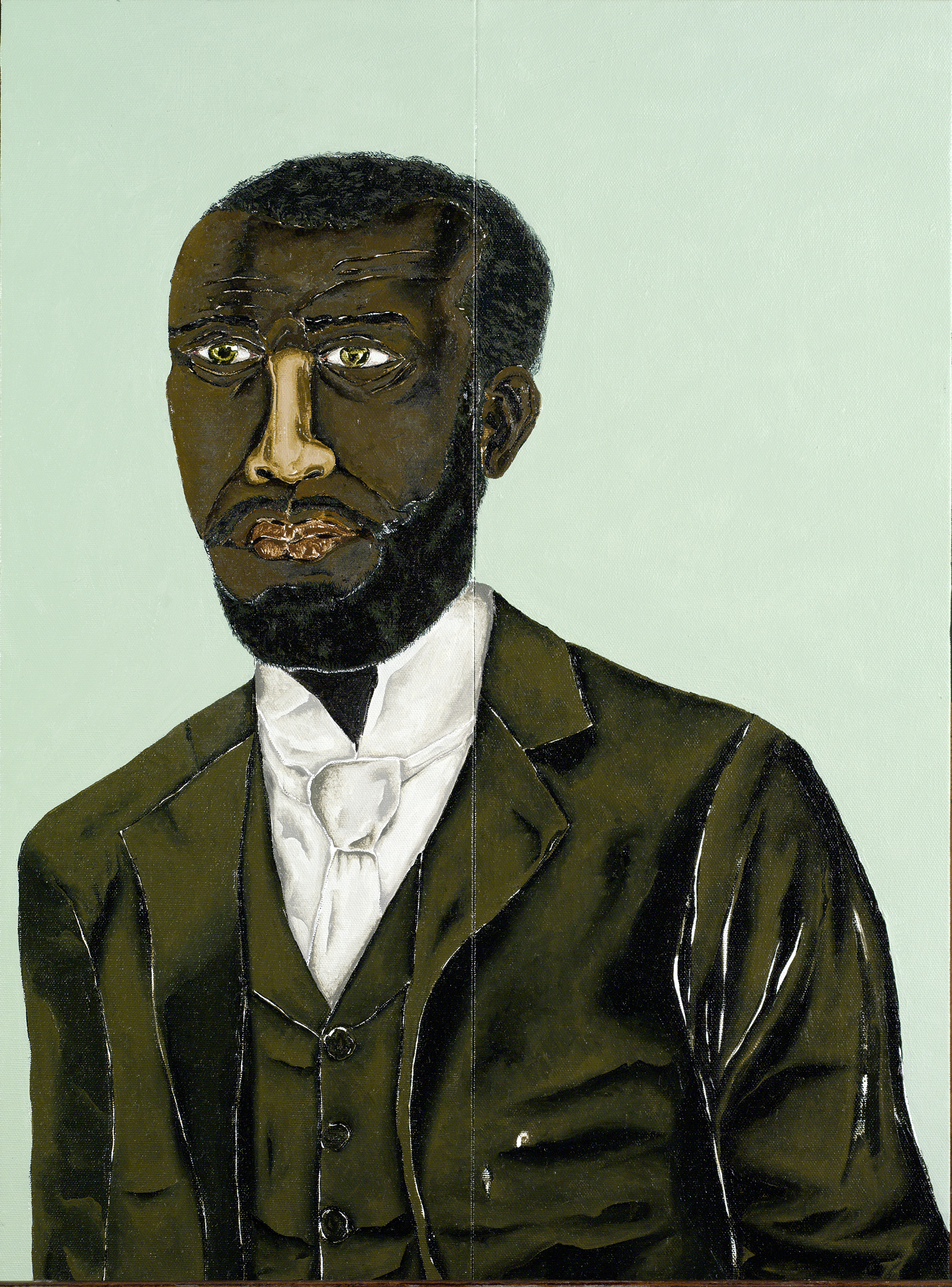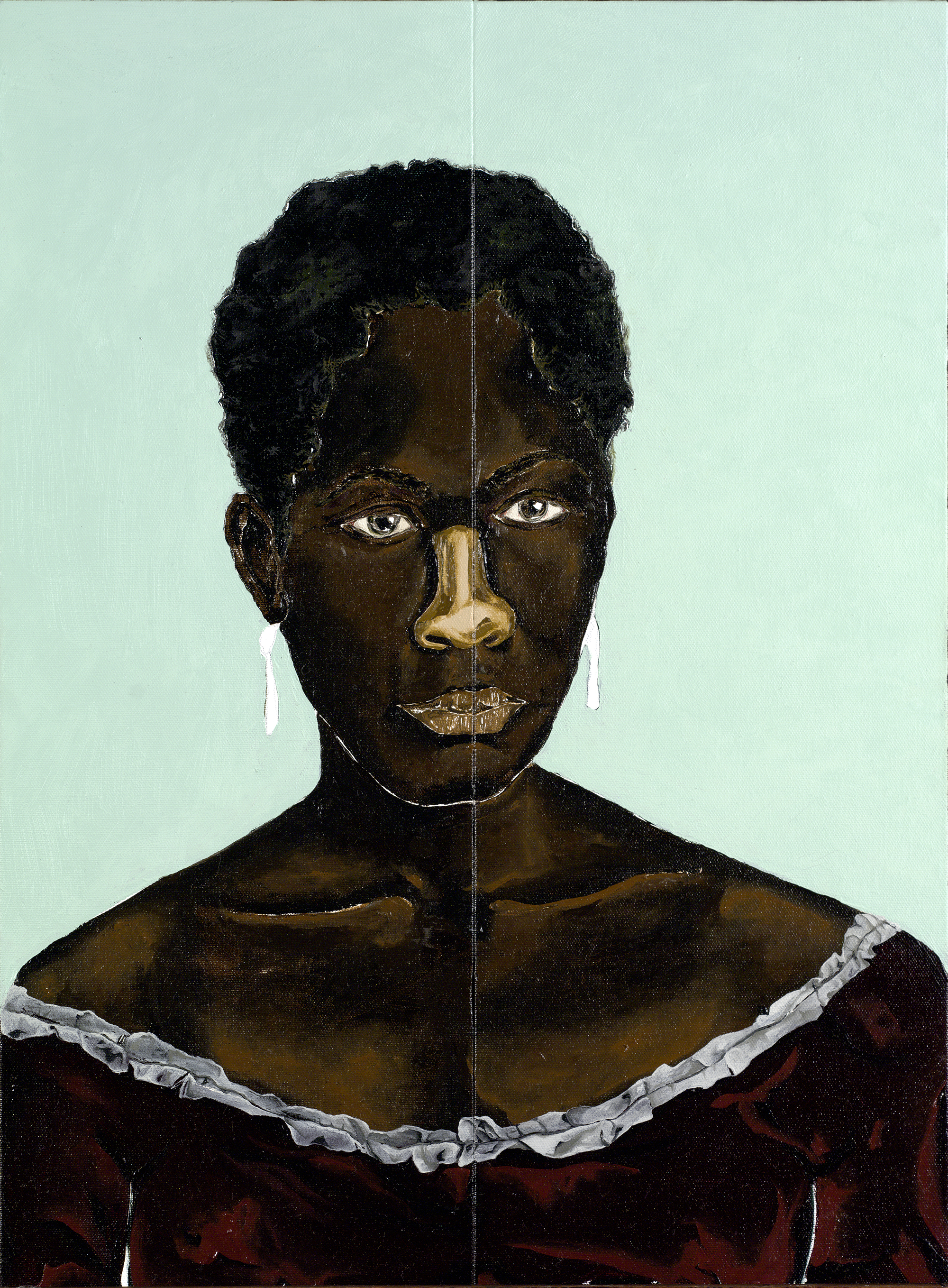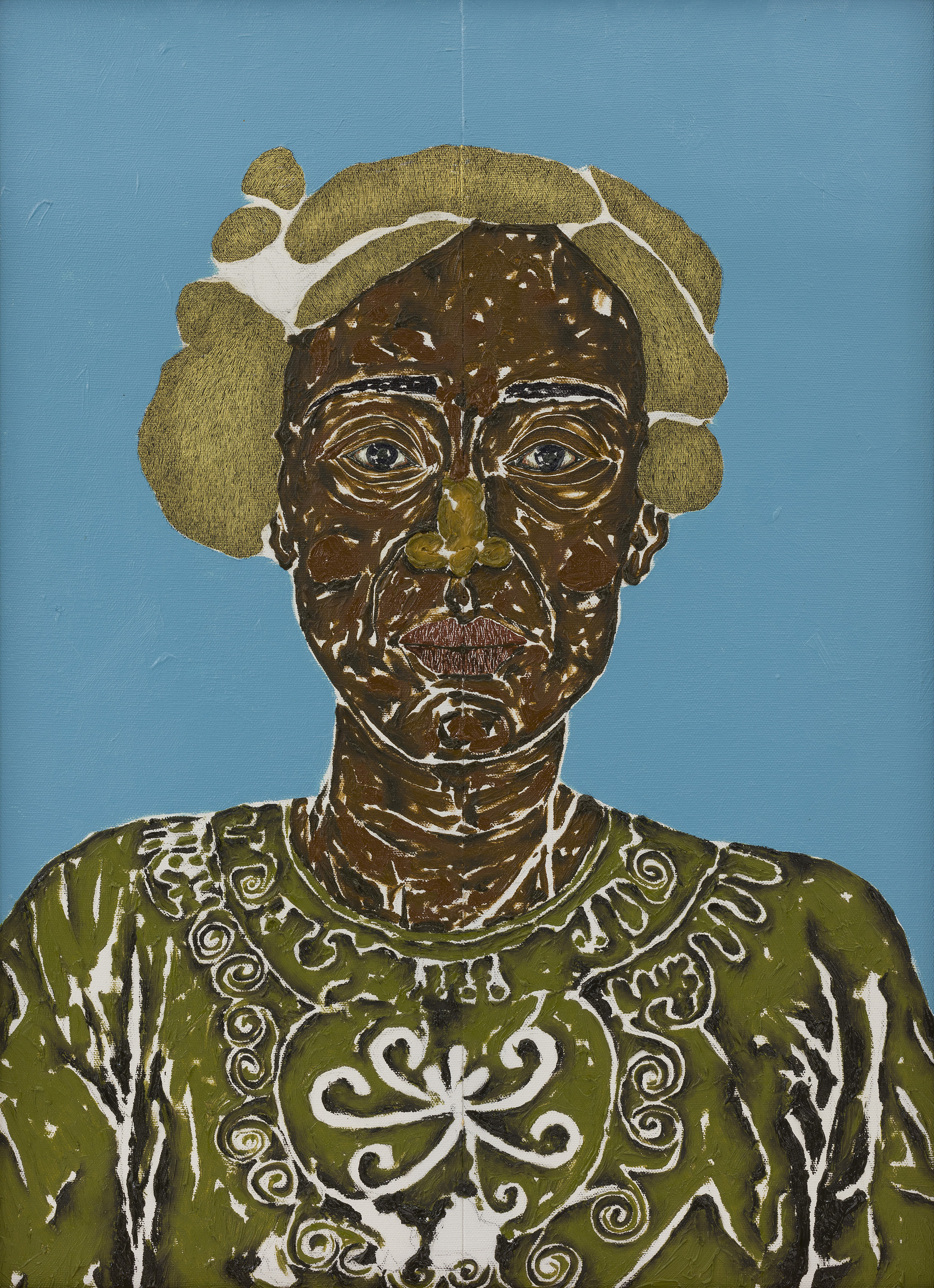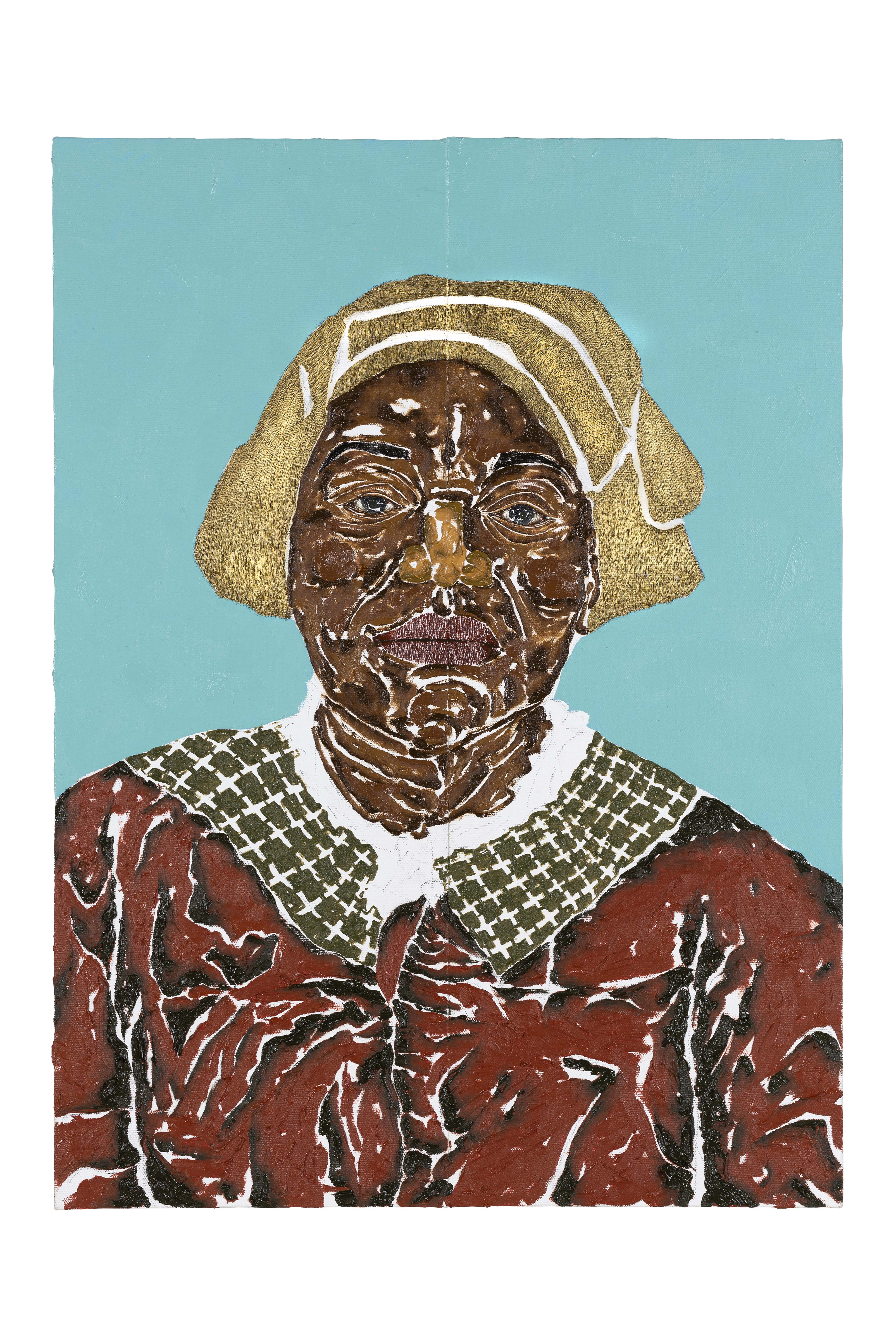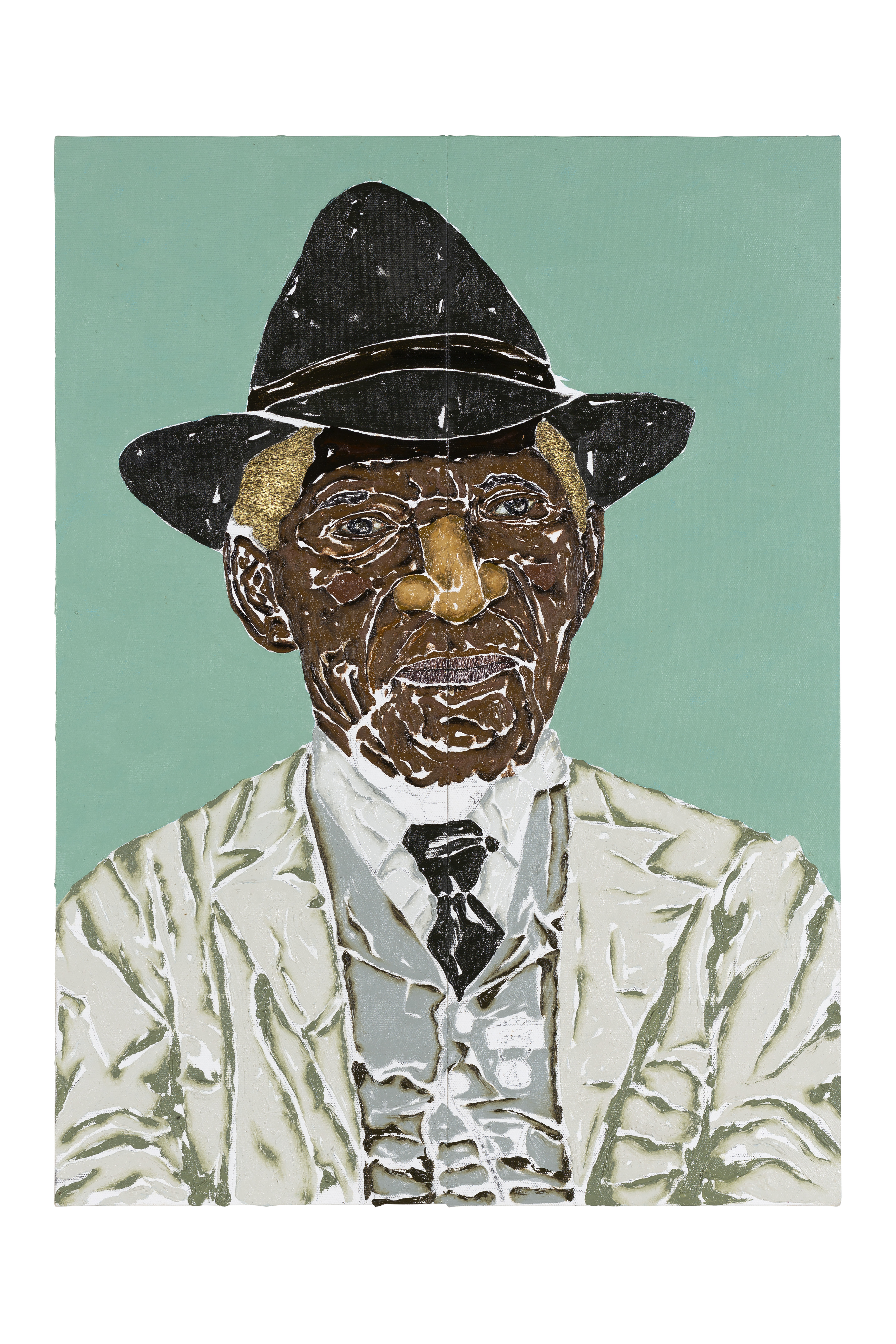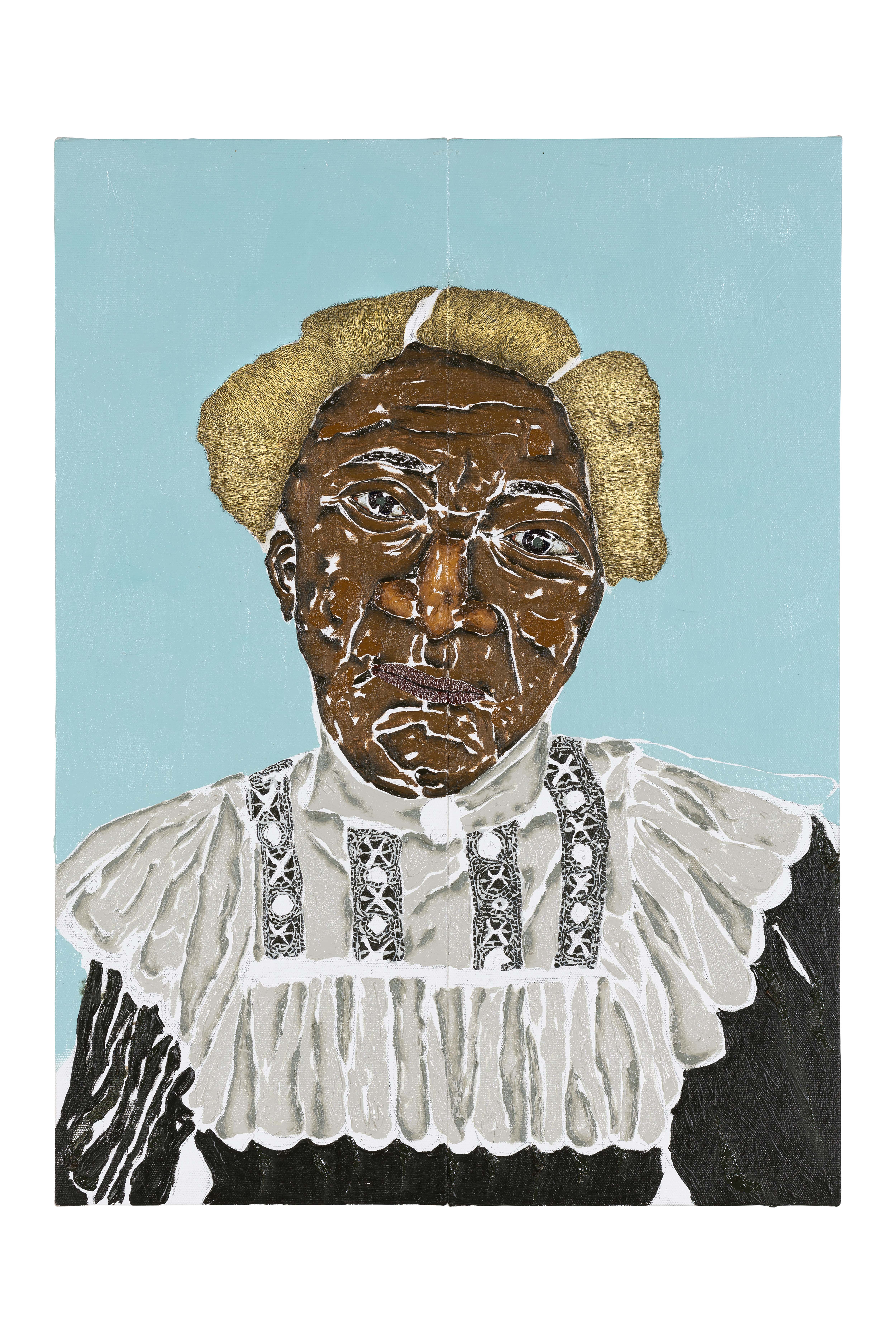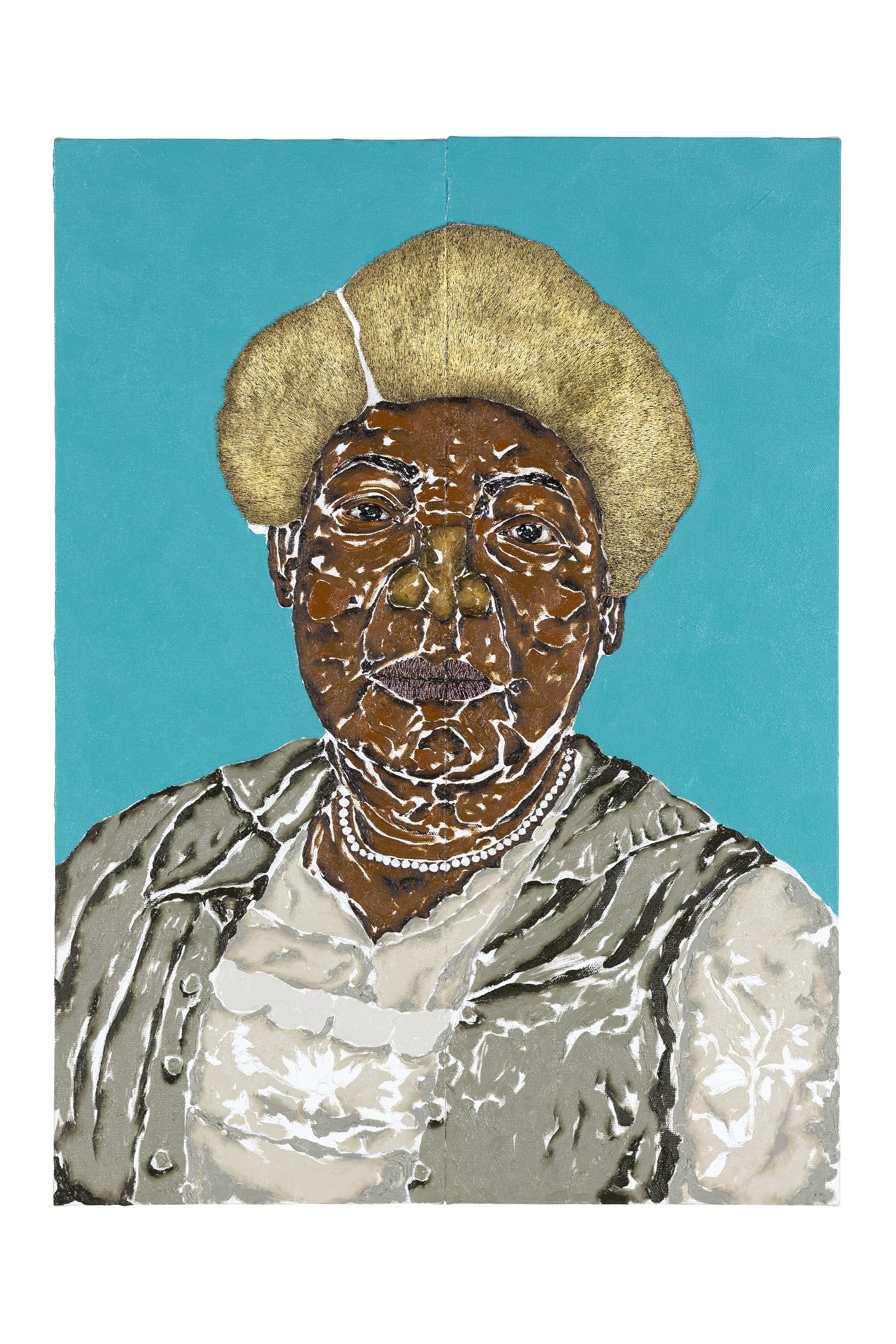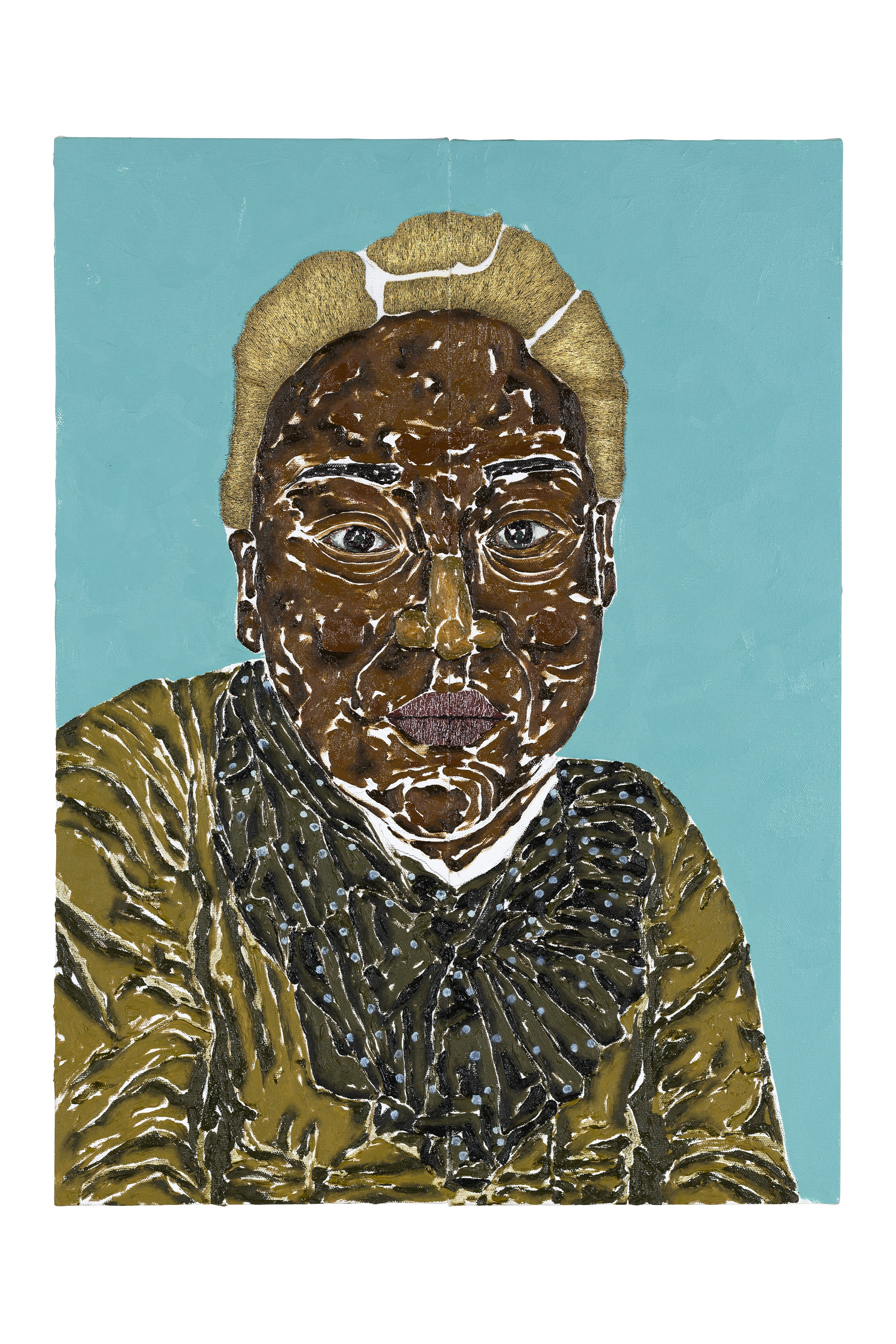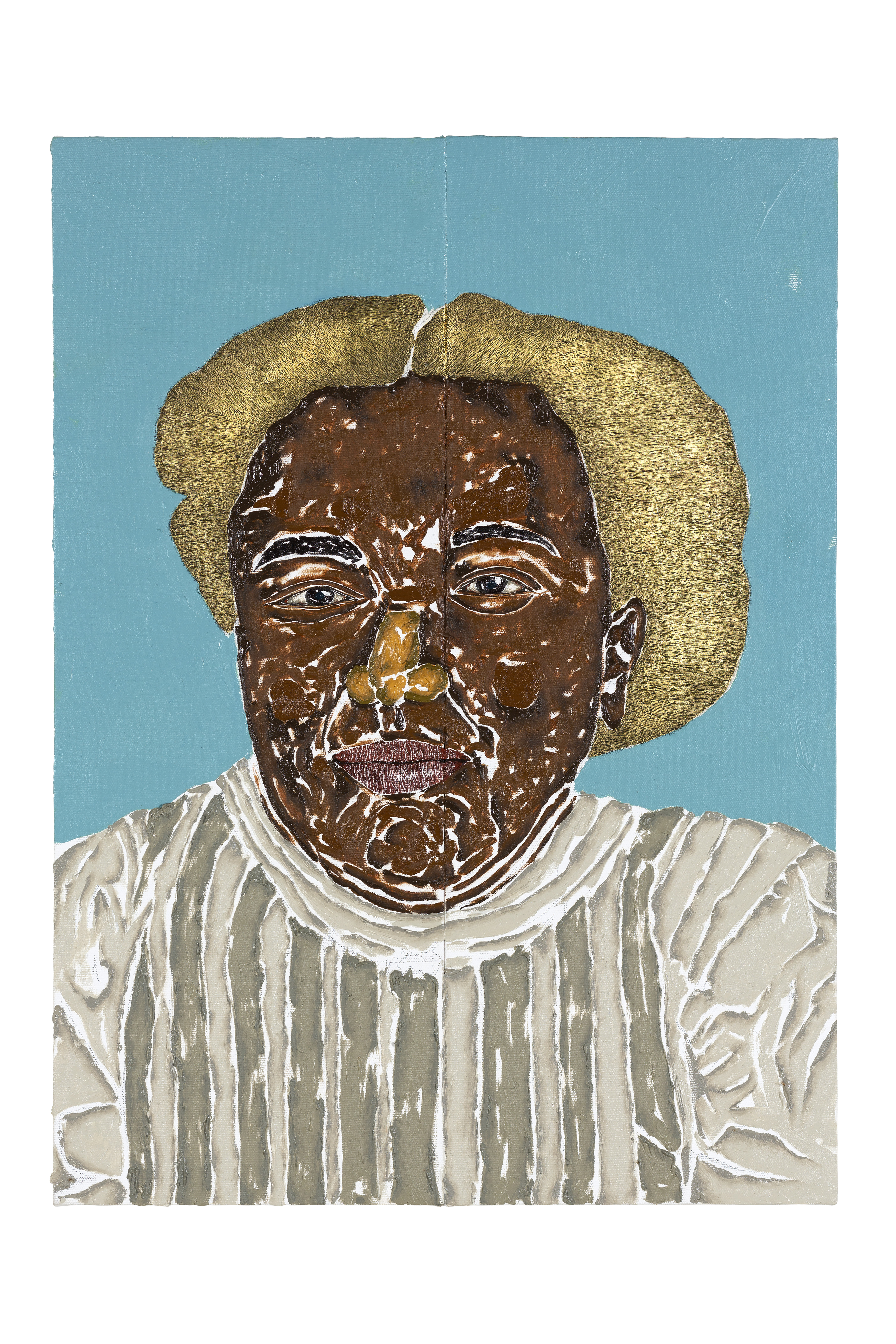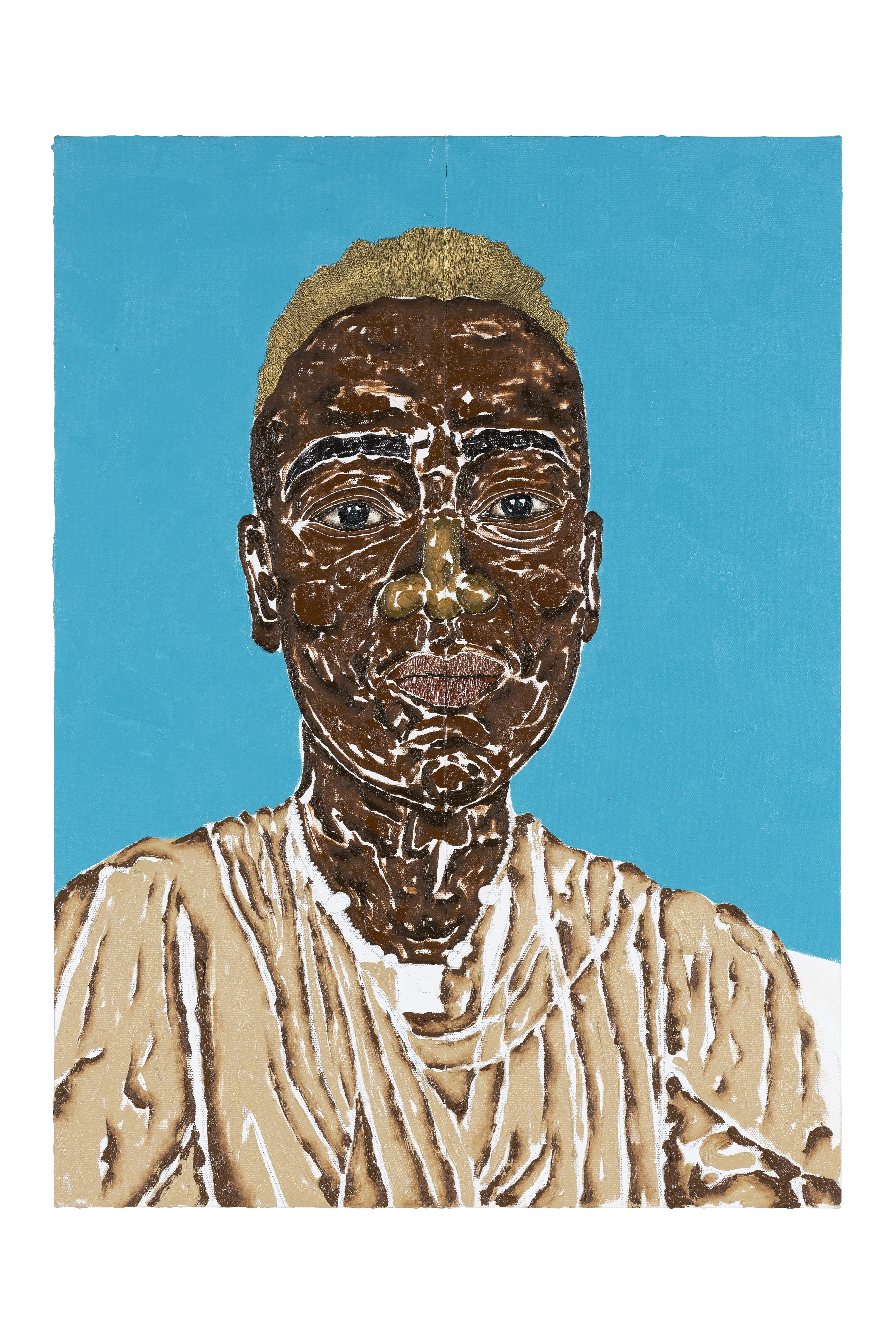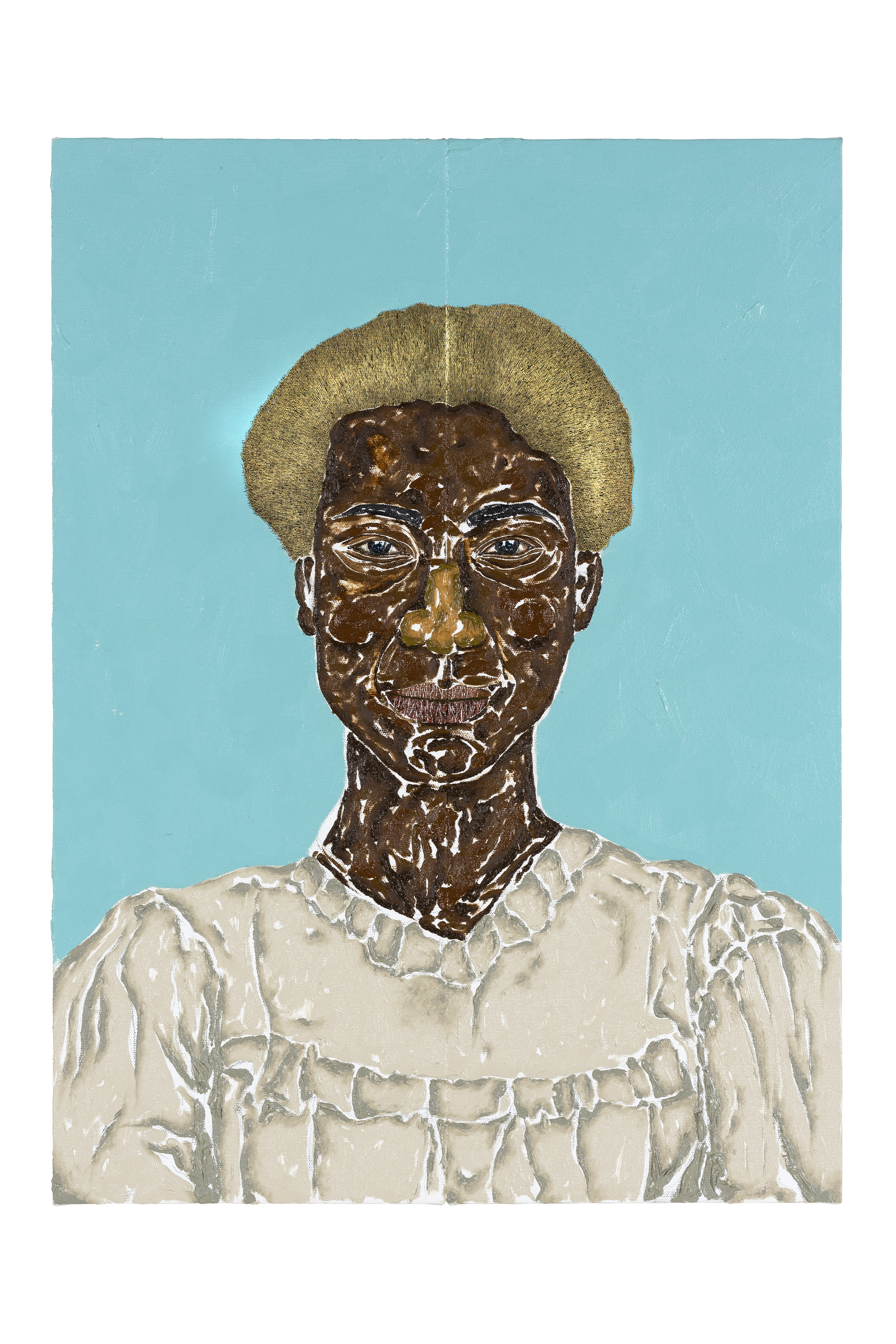Dalton Paula
João de Deus Nascimento, 2018
Author:
Dalton PaulaBio:
Brasília, Brasil, 1982Title:
João de Deus NascimentoDate:
2018Medium:
Óleo sobre telaDimensions:
59,5 x 44 cmCredit line:
Doação do artista, no contexto da exposição Histórias Afro-Atlânticas, 2018Object type:
PinturaInventory number:
MASP.10809Photography credits:
MASP
Dalton Paula navigates multiple artistic languages. His main interests of work are the black body and Afro-Brazilian religions. These two paintings were commissioned for the exhibition Afro-Atlantic Histories (2018) at MASP. Here, Paula utilized biographical accounts to create portraits of two abolitionist leaders: Zeferina (19th century) and João de Deus Nascimento (1761–1799). Zeferina was brought to Brazil as a slave from Angola while she was still a child. She rebelled against the slave system and played a key role in the creation of the Quilombo do Urubu, a settlement of runaway slaves in the outskirts of Salvador, Bahia. A symbol of resistance, together with indigenous and fugitive enslaved men and women, Zeferina planned an uprising, killing the white population and gaining freedom. The insurrection was ultimately dismantled by the Imperial police, which sentenced her to death. João de Deus Nascimento was one of the martyrs of the Conjuração Baiana, known as the Conjuração dos Alfaiates or the Revolta dos Búzios (1798), a popular and emancipationist movement mainly carried out by free and enslaved black men and women, who fought against the slave system and the subsequent adoption of a republican government in Bahia. The movement’s plans were discovered by the Portuguese Crown, which condemned its leaders to death, including João de Deus. In portraying forgotten black leaders, Paula reflects on the erasures of these figures from traditional historical narratives, disseminating and celebrating their images.
— Adriano Pedrosa; Tomás Toledo, 2018
By Flávio dos Santos Gomes e Lilia Moritz Schwarcz
Little is known about João de Deus do Nascimento, one of the leaders of the Baiana Insurrection, which broke out in Salvador on August 12, 1798—only what appears in the testimony given after he was arrested, on August 26, and a confession from February 23, 1799. Born around 1771, in the old village of Nossa Senhora do Rosário do Porto de Cachoeira, in the Recôncavo Baiano region, he was described as pardo (brown), freed, and a tailor. He probably left there unmarried, and in Salvador he met his wife, Luiza Francisca de Araújo. In the insurrection, he advocated the end of the monarchy and adherence to French Republican ideas. Of the hundreds of people denounced in the repression of the most radical colonial revolution, which dared to dream of an equal Brazil among brothers, 49 people were arrested and only four were sentenced to death: one of them was João de Deus.
— Flávio dos Santos Gomes and Lilia Moritz Schwarcz, originally published in Enciclopédia negra (São Paulo: Companhia das Letras, 2021). Translated from Portuguese by Aline Scátola, Pedro Ribeiro Nogueira, Rodrigo Maltez Novaes, and Tatiane Schilaro Santa Rosa.
